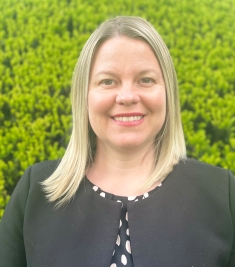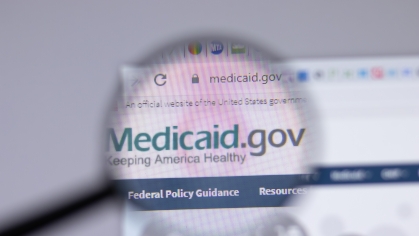In 2011, the U.S. Breastfeeding Committee (USBC) designated August as National Breastfeeding Month. The USBC organizes an annual social media advocacy and outreach campaign that encourages breastfeeding coalitions, partner groups, and individuals to engage in discussions and activities aimed at promoting policy and practice changes necessary to create a supportive environment for mothers and babies. Several states, such as New Jersey, have issued proclamations endorsing the USBC's mission.
“WHEREAS, Nurture NJ, New Jersey's statewide initiative to make New Jersey the safest, most equitable state in the nation to deliver and raise a baby, is committed to ensuring that all pregnant and postpartum individuals and caregivers can access a full range of support from health care institutions, insurers, employers, early care and education providers, researchers, and government entities to facilitate each family's personal breastfeeding goals;
NOW, THEREFORE, I, Philip D. Murphy, Governor of the State of New Jersey, do hereby proclaim:
August 2024 as Breastfeeding Month”
Melanie Shefchik, a Doctor of Public Health (DrPH) candidate at Rutgers School of Public Health, shares her journey and dedication to maternal and child health (MCH) and highlights the vital role breastfeeding plays in promoting health and well-being.
---
What inspired you to focus on MCH and public health, and why do you believe it's a crucial area of study and action?
I am a public health practitioner, registered nurse, and lactation counselor, and I enjoy finding ways to connect those together in my career. My passion for maternal health and breastfeeding was shaped by my own experiences, challenges, and observations as a nurse and mother (to two great kids!), as well as what friends, family, and community members have shared with me about their lived experiences with pregnancy, birth, and breastfeeding.
My broader professional vision is to engage in work that makes that transition and journey easier for pregnant and postpartum people. To me, maternal and infant health are critical and foundational components of a healthy society. These outcomes serve as indicators of the health of future generations, expose deep societal inequities, and are tied to many other pressing public health issues.

Can you tell us about your current research on breastfeeding and what led you to pursue a doctoral degree in public health?
It has always been my dream to pursue my doctoral degree. I wanted to better be able to connect research to practice and apply leadership skills to advance public health. I appreciate the opportunities I have had to weave my interest in maternal health and breastfeeding throughout many aspects of this journey.
For instance, I have been able to meaningfully explore these topics from different angles via the coursework, which has included assessing gaps in our maternal health surveillance data, designing innovative interventions to improve postpartum outcomes, evaluating the legal dimensions of policy initiatives, and analyzing how power (who has it and how it gets wielded) influences the ability to implement change. I have now reached the dissertation phase where I am conducting a mixed methods study that aims to develop a more comprehensive picture of the interactions between healthcare supports, mental health, and breastfeeding behaviors.
My hope is that this research will inform policy and practice recommendations that foster enhanced and equitable perinatal and lactation outcomes for families. Perhaps for next year’s Breastfeeding Month, I will be able to share some of the findings!
How does breastfeeding tie into other public health issues?
A case can be made that breastfeeding is a fundamental preventive and population health improvement strategy. In the child, breastfeeding is associated with reduced rates of ear, respiratory, and gastrointestinal infections, sudden infant death syndrome, obesity, and Leukemia. In the breastfeeding parent, breastfeeding reduces the risk of breast and ovarian cancers, Type 2 Diabetes, Rheumatoid Arthritis, high blood pressure, high cholesterol and cardiovascular disease.
In addition, research is emerging that suggests breastfeeding may have a protective effect on perinatal depression and other mood disorders, which are serious and unfortunately common complications of childbirth. All of this provides a pretty strong rationale for why we should invest in dismantling barriers and scaling up support for individuals who make an informed choice to breastfeed.
What specific challenges do breastfeeding mothers face and how can public health help promote successful initiatives and policies that improve MCH outcomes?
In the U.S., we have focused attention on promoting breastfeeding as the ideal source of infant feeding. However, where we fall short is in providing the supportive infrastructure so that parents are able to breastfeed for as long as they intend without facing numerous obstacles along the way.
Common barriers fall within the social and structural determinants of health and include poor social and familial support, pervasive marketing of formula, inadequate paid family leave laws, lack of workplace accommodations, and challenges with health services, such as biased, inconsistent, or inadequate information from health professionals.
There has been some significant policy movement in the last couple of years, especially passage of the PUMP Act which ensured most workers the right to time and space for pumping at work, and the recent changes to Title IX regulations that explicitly require that students are provided with clean, non-bathroom spaces to express breastmilk. However, there is much more work to do! From my standpoint, the most consequential policy that public health leaders can advocate for is national Paid Family and Medical Leave, which is associated with so many maternal and infant benefits, even beyond breastfeeding.
At the more local level, public health professionals can support the implementation of breastfeeding-friendly policies in healthcare, childcare, and employer settings and can collaborate with partners to build and amplify community breastfeeding resources for a stronger, more robust system of support.
---

Shefchik’s DrPH dissertation is being advised by committee members, including Slawa Rokicki, assistant professor in the Department of Health, Behavior, Society and Policy at the Rutgers School of Public Health.
"It's been a great pleasure working with Melanie on her dissertation,” said Rockicki. “Her work will provide a deep understanding of the relationship between perinatal mental health and breastfeeding, as well as an impactful New Jersey-focused policy analysis examining how health care support can improve breastfeeding take-up and duration.”
“Understanding these factors is hugely important for helping moms in New Jersey reach their breastfeeding goals and improve both maternal and infant health."



